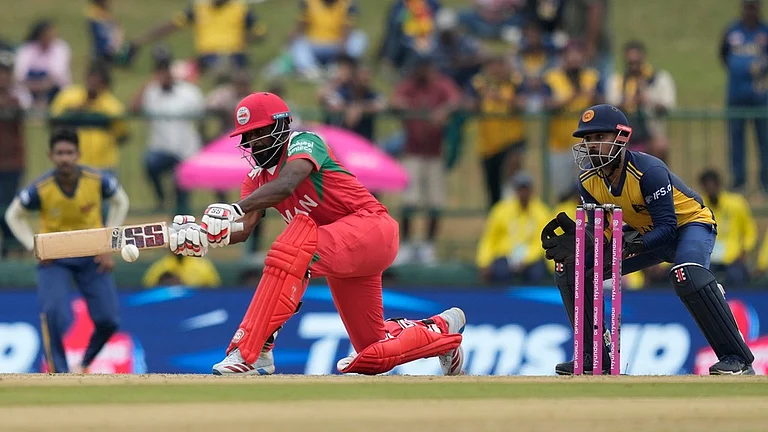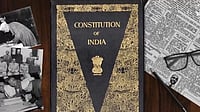The 2023 Monsoon Session of Parliament gets underway this week. Parliamentary Affairs Minister Pralhad Joshi announced that the session will commence on July 20 and conclude on August 11. This is also a significant parliamentary session as it is the first one which will be held in the new Parliament building that is part of the Central Vista redevelopment, to upgrade the nation's centre of power. The session is expected to be a stormy one, as all parties look to the Lok Sabha elections next year. The opposition intends to close ranks and a key point of contention will be both the Uniform Civil Code and the ongoing violence in Manipur. Aware of this, Joshi asked all parliamentarians to ensure a productive session, saying on Twitter, “Urge all parties to contribute towards productive discussions on Legislative Business and other items”.
However, disruptions in Parliament are nothing new, and in fact, have become an endemic feature of Parliament’s functioning. Sometimes it has been bad enough to lead to legislative paralysis which has hampered or blocked governance altogether. This Monsoon Session, significant already with polls in sight and a sparkling new building waiting to be christened, Outlook looks back at some of the most notable incidents of parliamentary disruptions and the context surrounding them, as another stormy session looms.
GV Mavalankar, the first Speaker of the Lok Sabha, said on 15 May 1952,”‘An atmosphere of sportsmanship, mutual goodwill and respect is an essential condition for the debates being useful, helpful and effective,” ahead of the first proceedings. Since then, things have panned out a little differently.
Lok Sabha Cash-for-votes Scandal (2008)
During a trust vote in the Lok Sabha, some members were alleged to have been bribed to vote in favour of the ruling coalition. The Opposition disrupted the proceedings, leading to chaotic scenes in Parliament. The scandal unfolded in the context of a trust vote that was scheduled to take place on July 22, 2008. The trust vote was called by the then-Prime Minister, Manmohan Singh, to prove the majority of his government.
The disruptions started a day before, and continued for many days, causing repeated adjournments and delays in parliamentary proceedings. The Opposition disrupted the sessions through protests, sloganeering, and even physical scuffles. They demanded the resignation of the Prime Minister and a thorough investigation into the scandal. It reached it’s peak when allegations about money being carried into Parliament itself were made. Ultimately, the trust vote could go through, and Singh would survive. However, because of the rowdiness and scale of the disruptions, the image of parliamentary politics was severely tarnished.
The Nuclear Deal Debate (2007-2008)
The Indo-US nuclear deal sparked heated debates and disruptions in both the Lok Sabha and Rajya Sabha. Opposition parties, including the Left Front, disrupted the proceedings to express their disagreement with the deal. The issue pertained to the United States-India Civil Nuclear Agreement, also known as the 123 Agreement, which aimed to enable civilian nuclear cooperation between the two countries and disruptions over this issue happened in the parliamentary sessions in both 2007 and 2008.
While it is hard to judge the exact number of working hours lost, or quantify how much of parliamentary time was wasted, because they happened over multiple sessions, it served to underline just how bad they were. It would eventually lead to many notable consequences, from the suspension of several MPs to the Left Front even withdrawing it’s support from the UPA government and ultimately a no-confidence vote.
Telangana Statehood Demand (2013-2014)
The demand for a separate state of Telangana led to numerous disruptions in Parliament. Members from Andhra Pradesh, both in support and against the formation of Telangana, created chaos in the Lok Sabha and Rajya Sabha. As had become norm by this point, the sessions was characterised by sloganeering, walk-outs, and suspensions. However, the newest addition this time were actual physical clashes when an altercation took place between MPs from Congress and the TRS inside Parliament in February 2014. It resulted in the temporary suspension of those involved.
According to statistics provided by PRS Legislative Research, that winter session of 2013 which would be adjourned sine die two days ahead of schedule, the Lok Sabha would work for only 4 hours and 31 minutes, which was 6% of the scheduled time available. No attempt would be made later to compensate for this lost time.
Demonetization Debate (2016)
The sudden announcement of the demonetisation, where almost 85% of the currency in circulation in the country was rendered invalid by the government, caused a massive uproar in Parliament. Opposition parties, including the Congress, disrupted the proceedings, demanding answers from the government regarding the policy's implementation, and leveling accusations about the entire way in which it had been carried out.
This winter session would also be remembered for the notable absence of the prime minister Narendra Modi, and go down as one of the worst-performing parliamentary sessions ever, as a near complete legislative deadlock ensured. Both Houses would see enormous disruptions, with the Lok Sabha losing 107 hours and their Rajya Sabha counterparts losing 101 hours.
Best underlining the scale of the disruptions that session is this fact. At the beginning of the session, nineteen bills were listed for consideration. Not even one of them would be passed. PRS Legislative Research noted that over 90% of the planned legislative business could not be carried out.
Land Acquisition Bill (2015)
The Land Acquisition, Rehabilitation, and Resettlement Bill, aimed at amending the existing land acquisition laws, faced resistance from various opposition parties. Disruptions occurred again in both houses of Parliament during debates on the bill. That Monsoon Session, only one bill would be passed. The Rajya Sabha in the Budget Session the same year recorded a productivity level of 101%. In the monsoon session, this would be 9%, and neither house would actually even sit for business for the first two weeks. Those percentages were not the worst to characterise the scale of these disruptions. 2% and 13%. Those would be the percentages of questions answered orally, respectively by the Rajya Sabha and the Lok Sabha.
Women's Reservation Bill (2010)
The Women's Reservation Bill, which proposed a 33% reservation for women in the Parliament and state legislatures, faced opposition from political parties. Disruptions and protests occurred during the bill's discussions in Parliament, leading to walk-outs, as usual. It would be hailed as one of the worst and least productive parliamentary sessions, until later years would provide stiff competition.
The Winter Session of that year would become famous for being stalled throughout it’s duration. Records started to be kept at the 8th Lok Sabha in 1985. From then, 82 sessions of Parliament would happen. That Winter Session would go down as the worst amongst all of them. On almost every indice and percentage, it would record shocking numbers. By the end, it got so bad that in desperation, four appropriation bills would be passed, all under five minutes, and each under two minutes.
Many have noted that the rise in disruptions had also become far more frequent in modern times. Reports and research have delved into this, noting that perhaps the growth of a more heterogeneous parliamentary population, as well as the now fragmented nature of the Houses, as opposed to the earlier dominant systems has led to a general acceptance of the disruptions as everyday business, almost. Furthermore, as parliamentary proceedings are now televised, members know that it is often a sharp strategy to put more pressure and raise awareness for the issues being contended at the time.
As the Opposition and the ruling party brace for yet another round of showdowns, larger questions also need to be asked about structural and efficacious reforms in our Parliamentary proceedings in order to ensure that taxpayer money is not wasted on sine-die sessions, and productive sessions can further contribute to exponential improvement in the overall governance of the country.

























